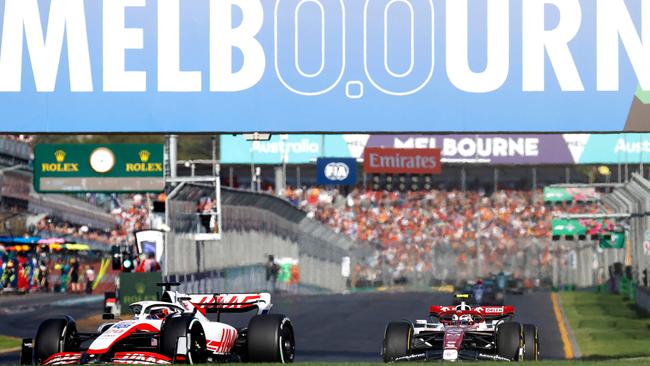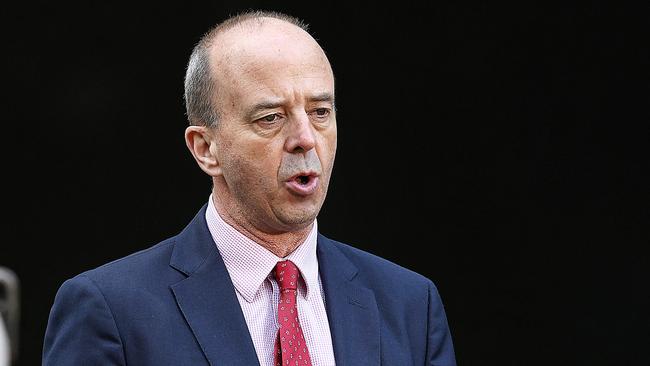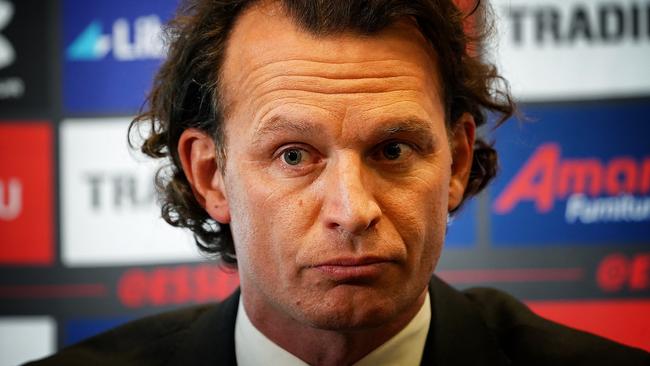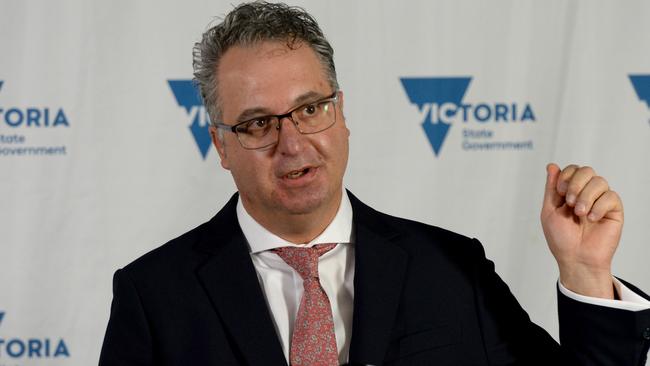Paul Guerra tipped to take reins of Melbourne F1 Grand Prix
A prominent business leader has firmed as a contender to take over as boss of the Melbourne Formula One Grand Prix.

Victoria
Don't miss out on the headlines from Victoria. Followed categories will be added to My News.
Prominent business leader Paul Guerra has firmed as a contender to take over the running of the Melbourne Grand Prix.
The Victorian Chamber of Commerce and Industry chief is being seriously discussed to replace Australian Grand Prix Corporation boss Andrew Westacott when he steps down in June.
The upcoming vacancy was discussed at a recent strategy meeting of Australian GP board members in Melbourne, when the full nine member panel including former Aussie F1 star Mark Webber and motorcycle great Mick Doohan were present.
But the formal recruitment process has not yet commenced.
Former F1 race director Mark Massey’s name has also been associated with the prominent post, following his departure from the FIA last year.

Massey would be a high profile signing, given his broad knowledge of the sport and extensive contact list in F1 circles.
But insiders say he is an outside chance at best of taking over the reins as Australian GP chief.
Former Essendon chief executive Xavier Campbell, who has close ties with Grand Prix chairman Paul Little given their time together with the Bombers, is believed to be another candidate.
But he is weighing up a family move to France.
Former AGPC operations general manager Amy Hill is also highly rated.
The Herald Sun revealed in December Mr Westacott would stand down from a post he has held since 2011 when his contract expires on June 30.
He is expected to vacate the post some time between the end of this year’s race on April 2 and that date.

The search for his replacement was to take in Aussie and international candidates.
Industry sources said Mr Guerra made an outstanding candidate given his extensive business experience and passion for major events.
“He’s CV’s pretty strong and he ticks a lot of boxes,” one source said.
“He’s good with the media, he’s been a CEO at a number of places, he’s passionate about major events and has experience with them.
“He’s also very well connected into government, which is a good place to be starting from.”
Mr Guerra is a former chief executive of the Royal Agricultural Society of Victoria (RASV), which runs the Melbourne Royal Show.
He’s also been the Chairman of the Queen Victoria Market and held senior positions at United Health Group, Motorola and Vodafone.
He was appointed as VECCI’s chief executive in 2019 and has been credited with raising the profile of the chamber while navigating the Covid-19 pandemic.

As a fierce advocate for Victorian businesses, Mr Guerra has insisted Melbourne fight to retain existing major events, and fight to secure new ones.
He said last year it was vital Melbourne, the only city in the world with a Grand Prix and tennis grand slam, “should continue protecting them fiercely”.
“Of course, other cities want to poach our major events and that’s a testament to their value on the global stage,” he said.
“The business community would certainly welcome a longer-term contract which would enable them to plan, prepare and invest to facilitate an even better event for years to come.
“When a city hosts any international event, the eyes of the world are watching and we know Melbourne shines brightest when we stage a major event like the Grand Prix.”
Australian Grand Prix Corporation General Manager – Corporate Affairs and Communications, Haydn Lane said: “the full AGPC Board met in Melbourne earlier this week to agree on the process for the recruitment of our next CEO and we’ll have more to say on those arrangements in the coming weeks.”
Last year’s Grand Prix was the first in its history to sell out, with a record estimated crowd of 419,144 passing through the gates for the four day event.
This year’s race day sold out within hours of going on sale last month, while general admission tickets for the Saturday qualifying event have also been exhausted.
Crowds will be capped at 130,000.



